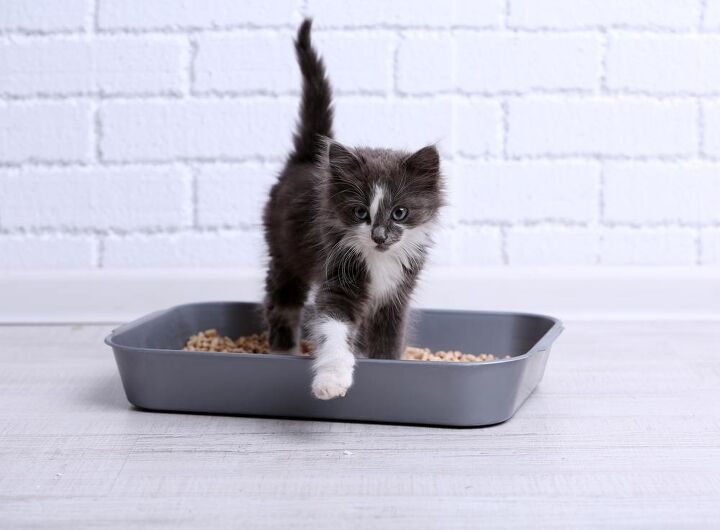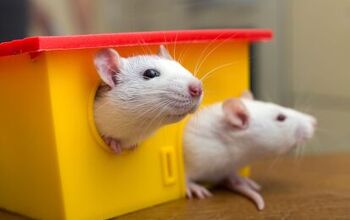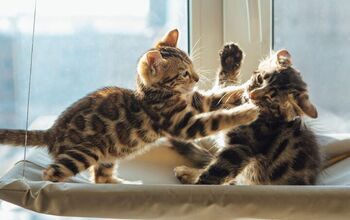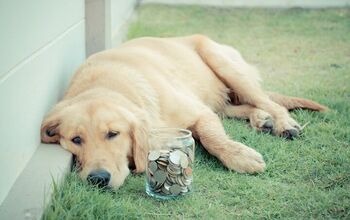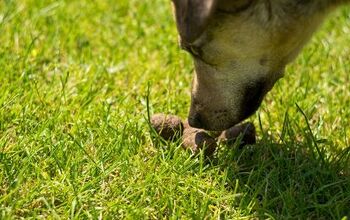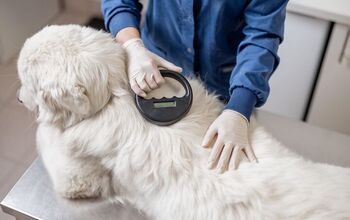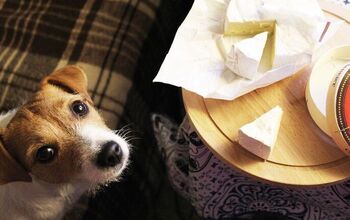How to Make a Cat Poop When Constipated

Just like people, cats can get constipated every now and then. And we all know how uncomfortable that can be! Thankfully, there are several things that you can do to help your kitty go to the litter box when she’s blocked up.
Check out the tips below to help gets things moving again, but keep in mind that, if your kitty is having a lot of trouble passing stool, a chat with your veterinarian is necessary for your pet’s wellbeing.
Related: What Causes Diarrhea in Cats?
Boosting the amount of water in your kitty’s diet is one of the first steps that you can consider taking when she’s constipated. You could, for example, add some water to the food that you’re feeding, or you could switch to canned food.
If your kitty deals with constipation often, and she’s on a dry food diet, transitioning to moisture-rich canned food might be just what she needs. Do so gradually—perhaps even over the course of months—to get your pet used to the change if she isn’t too keen on eating wet food at first.
Related: Cat Vomiting Bile: A Cause for Concern?
You might even try adding more water bowls throughout your home, such as in areas where your pet spends a lot of time, to help ensure that she’s properly hydrated. And you could even add some extra flavor to your pet’s water by mixing in some juice from a can of cat food. Doing so might encourage your kitty to drink more water. Some felines even prefer drinking out of a source of moving water, such as fountain designed for cats.
Another way to encourage your kitty to have a bowel movement is by giving her new toys that she can play with. Spending more time playing with your cat is mutually beneficial, as it’s fun to watch your pet’s acrobatics, and it also helps ensure that your pet is getting some much-needed exercise. Plus, helping your kitty maintain a healthy weight might also reduce or prevent constipation.
In addition to giving your furry friend a variety of toys that encourage stalking, jumping, and running, you might also consider adding a cat tree or two to your home, as that will give her the chance to climb as well.
There are some supplements that you could add to your cat’s food when she’s constipated, but it really is best to consult with your vet before doing so. You want to be absolutely sure that a supplement will be safe, and that you will be providing the appropriate dosage for safety and effectiveness. On top of that, it’s highly recommended that you use the highest quality supplements, and it’s wise to find out if a new supplement will interact with any other supplements or medications that your pet is currently taking.
A couple of examples of supplements that may help with constipation in felines are coconut fiber and psyllium. Another good option might be coconut oil, particularly if hairballs are playing a role in the constipation. Other that that, natural laxatives, such as aloe vera juice, might be recommended by your vet as well. And some vets might even recommend wheat bran or canned pumpkin.
In addition to natural supplements, there are also products that you can purchase over-the-counter to help your kitty go to the bathroom. A couple of examples include Miralax and Metamucil. Again, you should talk to your veterinarian first to be absolutely sure a product will be appropriate for your unique cat.
Professional treatments, such as intravenous fluids or enemas, might be prescribed by your vet to get things moving. (Note: you should never administer an enema yourself.) Beyond that, your vet might prescribe a product like lactulose to help soften your pet’s stool, or you might need to switch your pet’s diet to one that has the right amount of fiber to support your cat’s digestive system.
Remember: treating your kitty for constipation at home is best done under the guidance of your veterinarian. If home remedies don’t help your cat go, or it’s been over 48 hours since your pet had a bowel movement, it’s time to have her examined to figure out if there are any underlying conditions that might be to blame. And if there are underlying medical problems causing the constipation, the treatment will depend on the diagnosis.

Lisa Selvaggio is a freelance writer and editor, and our resident cats-pert, with certifications in pet nutrition and pet first aid. She enjoys producing content that helps people understand animals better so they can give their pets a safe and happy home.
More by Lisa Selvaggio



